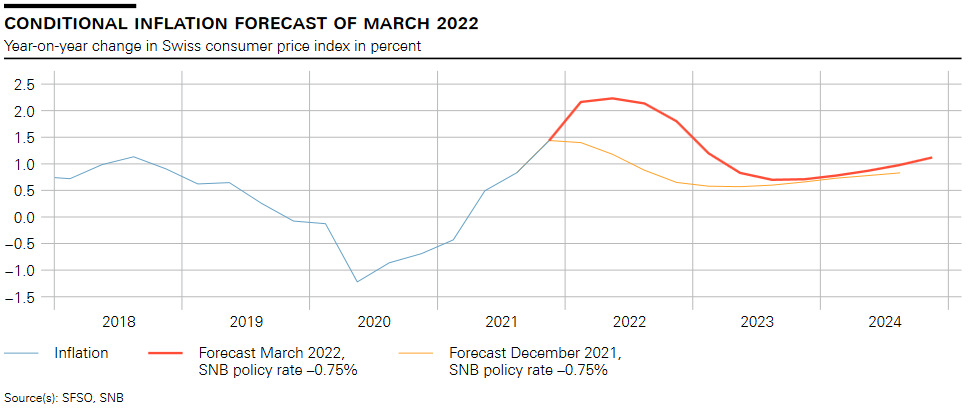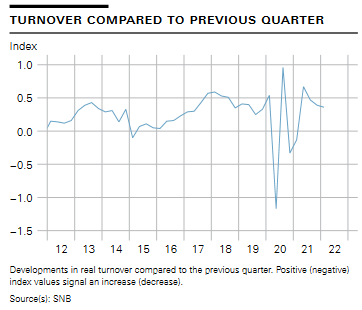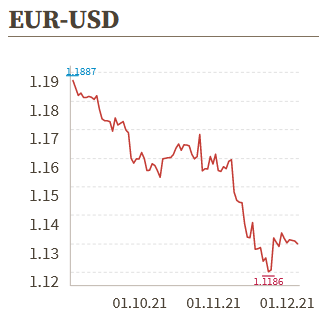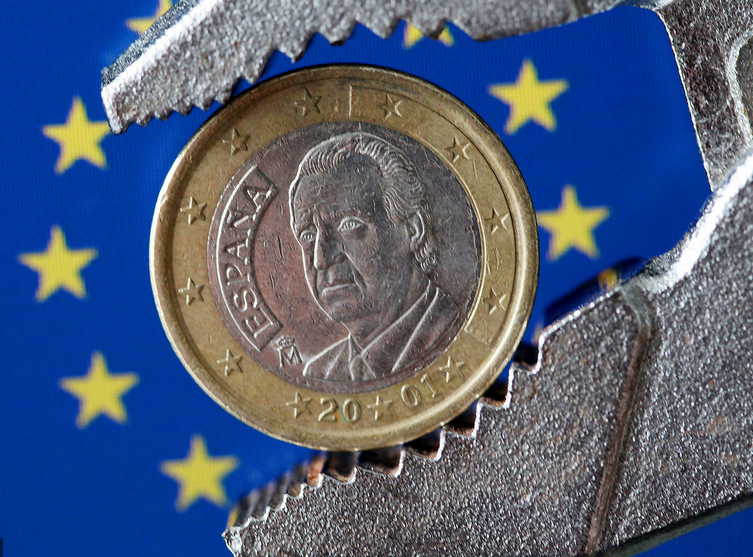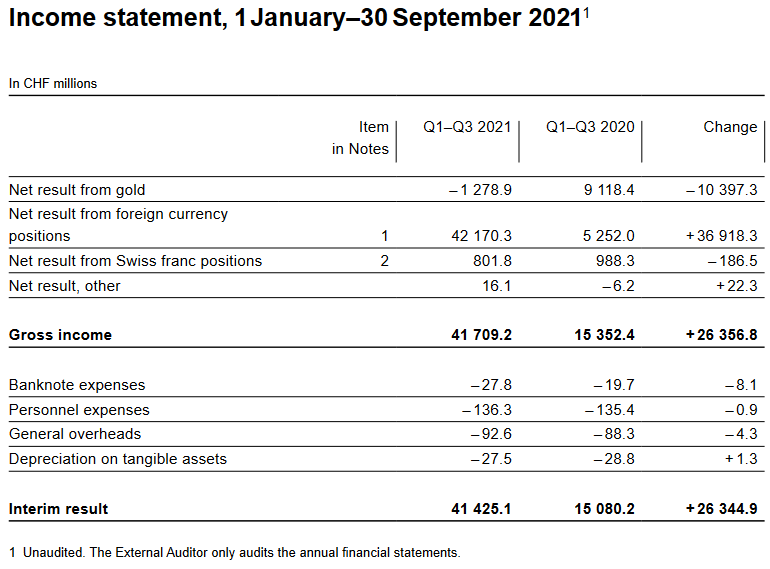Report for the attention of the Governing Board of the Swiss National Bank for its quarterly assessment of March 2022 The report describes economic and monetary developments in Switzerland and explains the inflation forecast. It shows how the SNB views the economic situation and the implications for monetary policy it draws from this assessment. The first section (‘Monetary policy decision of 24 March 2022’) is an excerpt from the press release published following the assessment. This report is based on the data and information available as at 24 March 2022. Unless otherwise stated, all rates of change from the previous period are based on seasonally adjusted data and are annualised. Swiss National Bank retains expansionary monetary policy The SNB is retaining its
Topics:
Monetary policy considers the following as important: 1.) Monetary Data, 1) SNB and CHF, Featured, newsletter
This could be interesting, too:
Nachrichten Ticker - www.finanzen.ch writes Die Performance der Kryptowährungen in KW 9: Das hat sich bei Bitcoin, Ether & Co. getan
Nachrichten Ticker - www.finanzen.ch writes Wer verbirgt sich hinter der Ethereum-Technologie?
Martin Hartmann writes Eine Analyse nach den Lehren von Milton Friedman
Marc Chandler writes March 2025 Monthly
Report for the attention of the Governing Board of the Swiss National Bank for its quarterly assessment of March 2022
The report describes economic and monetary developments in Switzerland and explains the inflation forecast. It shows how the SNB views the economic situation and the implications for monetary policy it draws from this assessment. The first section (‘Monetary policy decision of 24 March 2022’) is an excerpt from the press release published following the assessment.
This report is based on the data and information available as at 24 March 2022. Unless otherwise stated, all rates of change from the previous period are based on seasonally adjusted data and are annualised.
| Swiss National Bank retains expansionary monetary policy
The SNB is retaining its expansionary monetary policy. It is keeping the SNB policy rate and interest on sight deposits at the SNB at –0.75% and is willing to intervene in the foreign exchange market as necessary, in order to counter upward pressure on the Swiss franc. In so doing, it takes the overall currency situation and the inflation rate differential with other countries into consideration. The Swiss franc remains highly valued. Russia’s invasion of Ukraine has led to a strong increase in uncertainty worldwide. Against this backdrop, the SNB with its monetary policy is ensuring price stability and supporting the Swiss economy. Inflation has risen again in recent months, and stood at 2.2% in February. This is primarily due to the significant increase in the prices for oil products and goods affected by supply bottlenecks. The tight situation with regard to these products and goods is likely to persist in the coming months owing to the war in Ukraine. The SNB’s new conditional inflation forecast is therefore above that of December, particularly for 2022 (cf. chart 1.1). The upward revision is less pronounced over the longer term. The new forecast stands at 2.1% for 2022, and 0.9% for 2023 and 2024 (cf. table 1.1). The conditional inflation forecast is based on the assumption that the SNB policy rate remains at –0.75% over the entire forecast horizon. The global economic recovery continued in the fourth quarter of 2021. However, economic activity was temporarily impaired at the turn of the year by a renewed wave of the pandemic. At the same time, inflation continued to rise in the US and the euro area. As a result of the war in Ukraine, there was a significant increase in financial market volatility in February, with strong rises in the prices of fossil fuels and other commodities. In its baseline scenario for the global economy, the SNB assumes that energy prices will remain high for the time being, but that there will be no acute energy shortages in the major economic areas. It also anticipates that the global economic recovery will continue overall despite the war in Ukraine, albeit somewhat subdued. The higher commodity prices will lift inflation further in the short term. Economic growth has slowed in Switzerland. Following a strong increase in both preceding quarters, GDP rose by 1.1% in the fourth quarter of 2021. For the year as a whole, however, the Swiss economy grew by 3.7%. Momentum remained positive through to February 2022. The situation on the labour market also continued to improve. Thus far, the war in Ukraine has had an effect on the Swiss economy above all via the strong increase in commodity prices. The higher commodity prices are likely to weigh on consumption and increase companies’ production costs. Foreign trade is also likely to be affected by the war, albeit not severely given Switzerland’s limited direct economic ties to Ukraine and Russia. Supply bottlenecks in the case of imported intermediate products could deteriorate further, and uncertainty could have an adverse impact on investment activity. |
More Information: Download PDF
Tags: Featured,newsletter

